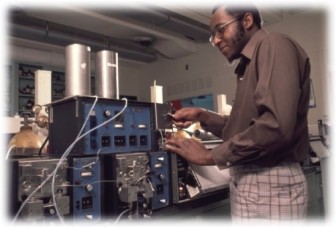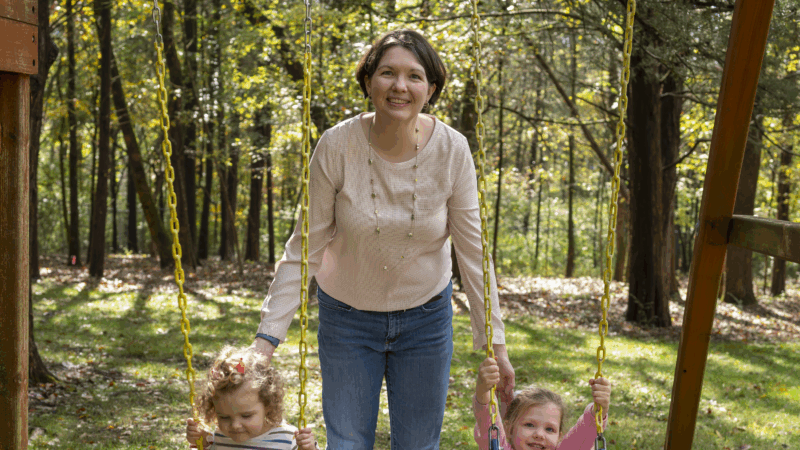Parker High School, Family And Community Helped Propel Top Scientist Dr. Willie May
College graduation is just days away for millions of students. A recent study shows there’s good news for grads looking for jobs in science, technology, engineering and math, also known as STEM fields. Dr. Willie May, a graduate of Birmingham’s Parker High School, struck out on a path in science more than 45 years ago, completing a chemistry degree at Knoxville College. Today, he’s one of nation’s chief scientists and heads the National Institute for Standards and Technology. Dr. May talks with WBHM’s Sherrel Wheeler Stewart about his work, how he got there and what science offers our nation’s youth.
What benefit does an education in science or technology offer graduates today?
“There are so many opportunities that you have as a scientist that you don’t have if you work in some other field. Scientists by our nature share our research results with the global community. The training you get as a scientist of assimilating information from diverse sources and making decisions, I think, prepare you for leadership positions in other areas.”
What sparked your interest in science?
“My mother had decided that I would go to college and the only way I could do that was to get a scholarship. My dad wanted me to play baseball. Back in those days in Birmingham, the big plants had teams – TCI, Conner Steel, Stockholm. If you played ball, you didn’t have to work very hard. Science intimidated folks, like it still does. This was the post Sputnik era. So if you had an aptitude for science, and pursued that, there was a great chance that you’d get a scholarship. My ambition was wearing a white lab coat and working in it, and not working in the steel mills and coal mines. So that was my vision for success.”
How do we attract youths today to the study of science and technology?
“I think we have to continually articulate the importance of science and technology to our well being as a society. I think we have to get kids to see that [science] it can be cool and exciting.”
Did you face barriers growing up in Birmingham in the 50s and 60s?
“Obviously growing up in Birmingham Alabama in the late 50s and 60s there were barriers, but fortunately I had lots of folks who invested a lot in me and I owed it to them not to allow those barriers to deter me.”
Can you tell us about the National Institute for Standards and Technology?
“We are doing science in any area of measurements in science that you could imagine. In 1901, we were developing the standards for light, light bulbs. Fast forward to 2016, we are researching advanced communication. We’re working with the buildout of of a nationwide LTE network for first responders. Every day has offered new challenges and an opportunity to see how my work and the work of the institution is making an impact on innovation, productivity and improve the quality of life not only in the U.S. but around the world.”
“There has not been one day in 45 years that I got up and said, “Dog, I got to get up and go to work today.”
The 2026 Alabama legislative session begins Tuesday
State lawmakers will return to Montgomery Tuesday to kick off the 2026 legislative session. It's the final session for Gov. Kay Ivey. It also comes against the backdrop of statewide elections this fall. For a look ahead to what to expect this session we turn to Todd Stacy, host of Capital Journal on Alabama Public Television.
Who are the figure skaters representing Team USA? Key names and backstories to know
Sixteen U.S. figure skaters are competing in all four Olympic disciplines: men's, women's, pairs and ice dance. The team includes a mix of seasoned vets, world champions and rising stars.
How IVF has led to a record number of single moms in their 40s
Who gets to be a parent has been reshaped by IVF: Single women in their 40s are increasingly opting to become moms.
Exercise is as effective as medication in treating depression, study finds
New research shows exercise is as effective as medication at reducing symptoms of depression. And you don't need to run a marathon to see benefits. So how much is enough?
Marrying for health insurance? The ACA cost crisis forces some drastic choices
While Congress debates bringing back Affordable Care Act subsidies , many Americans have already made life-altering decisions to afford health care.
Celebrities wear pins protesting ICE at the Golden Globes
Some celebrities donned anti-ICE pins at the Golden Globes on Sunday in tribute to Renee Good, who was shot and killed by an Immigration and Customs Enforcement officer last week in Minneapolis.








